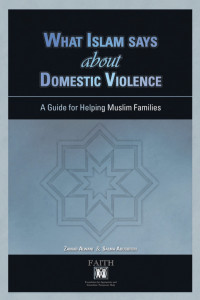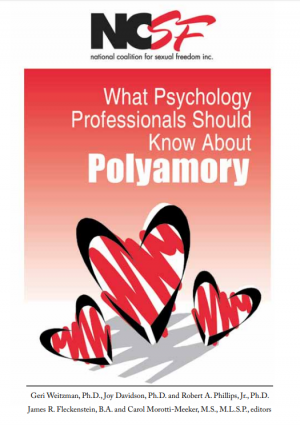Resources Library: Population-Specific Response
Start a Search:
Virginia LGBTQ Community Resource and Referral Guide
This guide was created to serve as a resource for people working with LGBTQ Virginians who might not be aware of the extent of community based resources in their areas. Includes medical, legal, community, and religious/faith resources by region (central, eastern, southern/southwest, norther, northwest, and state). Published by the Virginia Anti-Violence Project.
What Islam Says About Domestic Violence: A Guide for Helping Muslim Families

What Islam Says About Domestic Violence: A Guide for Helping Muslim Families was written for victim advocates working at FAITH (Foundation for Appropriate and Immediate Temporary Help) in the field of domestic violence
(DV).
FAITH realized that most Muslim women don’t know the rights that Allah SWT (God) has blessed them with. DV survivors were following some cultural norms thinking that it was Islam. Therefore, suffering in silence.
FAITH approached the authors to write this book from the Islamic perspective so that the culture could be separated from the religion. FAITH thanks the authors for their expertise, diligence, hard work and commitment
to writing this book. The grant funding for the first edition was awarded to FAITH Social Services by International Institute of Islamic Thought (IIIT) and the Center for Multicultural Human Services (CMHS). It was funded in part by the Department of Criminal Justice V-Stop grant to CMHS.
FAITH is grateful to the scholars who reviewed this book and gave their reflections and blessings. FAITH appreciates the work of editors on this book. FAITH recognizes Center for Islam in the Contemporary World (CICW)
at Shenandoah University for making “What Islam Says About Domestic Violence: A guide for Helping Muslim Families” in a digital book.
This book can be downloaded free for educational purposes only and cannot be sold.
Published in 2003 by FAITH (Foundation for Appropriate and Immediate Temporary Help)
What Psychology Professional Should Know About Polyamory

The booklet is the result of collaboration among a small but dedicated group of activists and professionals – some polyamorous, some not – who believe that polyamory represents a serious relationship option deserving of respect and understanding among helping professionals and the broader public alike. The independent work of Dr. Geri Weitzman, Dr. Robert Phillips and [Dr. Joy Davidson], woven here into a single integrated text, provides a great introduction for the helping professional to begin educating her/himself on this form of relationship configuration.
WHY A TRANSCRIPT IS NOT ENOUGH TO MAKE YOUR VIDEOS COMPLIANT WITH ACCESSIBILITY LAW
Get tips about creating materials that are accessible to everyone you work with. Learn "Why A Transcript Is Not Enough To Make Your Videos Compliant With Accessibility Laws" in this blog by 3PlayMedia.
Working with Male Survivors of Sexual Violence
From the National Sexual Violence Resource Center, the tools in this project will help you understand how male socialization impacts the stigma and reaction to sexual violence. They will help you consider how to reach and engage men who need healing from sexual violence. They will help you map out potential partnerships in your service area. Finally, they will give you guidance on creating sexual assault services that meet the needs of male survivors.
Why men?
"We know that sexual violence impacts people of all genders and backgrounds. There are men who commit acts of sexual violence. Men can play an important role in interrupting sexual harassment and inappropriate behaviors. And in addition to these important truths, it is also vital that we recognize that men experience sexual violence and need healing."
NSVRC’s Resources on Working with Male Survivors
Assessing Our Capacity for Serving Male Survivors of Sexual Violence - Assessment tool
Sexual assault advocates and rape crisis centers can use this self-assessment tool to reflect on your current work serving men who have had unwanted sexual experiences. The tool offers reflection questions related to individual and organizational capacity to serve male survivors.
How often are men sexually harassed or assaulted? - Infographic
In this infographic, we provide statistics on the prevalence of sexual violence for men.
How We Talk About Working with Male Survivors of Sexual Assault, Harassment, and Abuse - Print publication
This resource suggests how you can communicate about sexual violence as something that men experience and about what services are available for survivors, including men.
Lessons on Serving Male Survivors Through Sexual Assault Services Program - Print publication
A resource containing lessons learned from sexual assault services programs with comparatively high percentages of male survivors served with that funding stream. An accompanying blog series highlights in more depth what programs told us about their work: see blog one, blog two, and blog three.
Sexual Victimization of Men: What the Research Says - Annotated bibliography
This annotated bibliography provides descriptions of recent research related to sexual victimization of men. It provides an overview of sexual assault, harassment, and abuse experienced by diverse populations of men in a variety of settings.
Who are male survivors of sexual harassment and assault? - Infographic
Men who survive sexual violence come from many different backgrounds and communities. In this infographic, we share statistics on the race, ethnicity, sexual orientation, gender identity, and disabilities of men who have experienced sexual assault.
Working with Male Survivors Podcast Series - Podcasts
This series from our podcast Resource on the Go includes conversations from across the field on working with male survivors of sexual violence. Topics include understanding expressions of trauma in men, working with formerly incarcerated male survivors, services for transgender male survivors and transmasculine survivors, and much more.
For additional resources, visit the NSVRC's toolkit webpage by clicking here.

